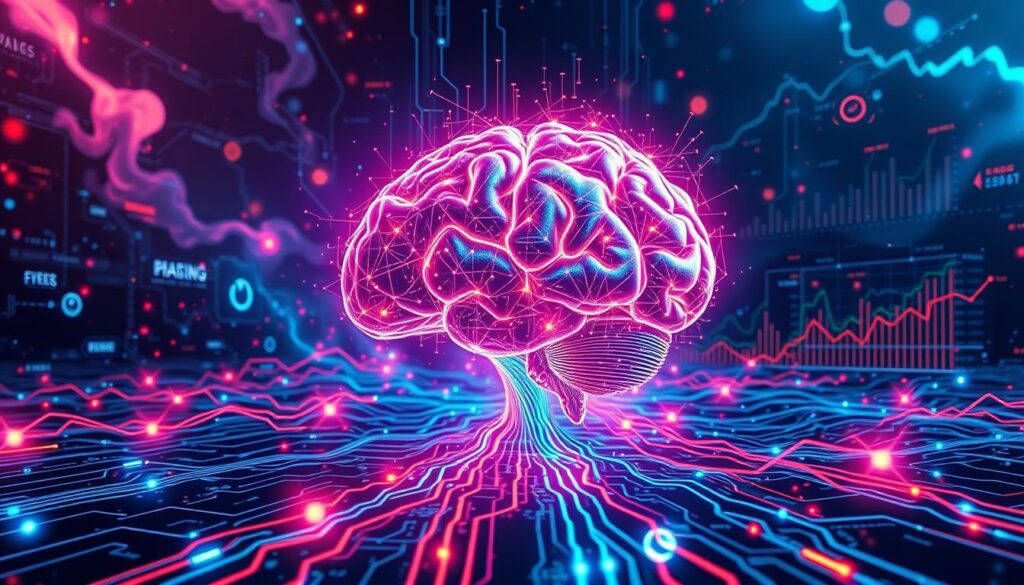Transform Your Life

Gratitude is more than just a feeling; it’s a powerful force that can change lives. Picture a simple jar called “Gratitude Jar” filled with notes of thanks every day. For one person, this simple act led to a life turnaround, from fighting addiction to achieving great success.
This change came from focusing on the positive every day. It greatly improved their happiness, health, and overall life satisfaction.
Science supports the power of gratitude. Studies in positive psychology show it boosts happiness by releasing dopamine and serotonin. It also lowers stress, improves sleep, and builds resilience.
By keeping a gratitude journal or doing kind acts, we can make gratitude a part of our lives. This leads to lasting improvements in our well-being.
Key Takeaways
- Practicing gratitude releases neurotransmitters such as dopamine and serotonin, linked to well-being.
- Expressing gratitude can reduce stress, improve sleep, and increase psychological resilience.
- Gratitude journals and acts of kindness are effective practices for embedding gratitude in daily routines.
- Gratitude deepens relationships by fostering mutual support and a sense of belonging.
- A grateful attitude helps individuals shift perspective from negativity to appreciation, enhancing joy in simple pleasures.
- Gratitude strengthens resilience during adversity by providing hope and motivation.
- Thanksgiving, rooted in gratitude, historically originated during tough times, highlighting its importance in challenging periods.
The Science Behind Gratitude
Gratitude is more than just a feeling. It deeply affects our brain and well-being. When we express gratitude, our brain releases dopamine and serotonin. These chemicals are key to feeling happy.
This is why practicing gratitude is so beneficial.
Neuroscience of Gratitude
Research shows that grateful people have a more active brain. This is especially true in the part of the brain that helps us learn and make decisions. When we do kind acts, like giving, our brain lights up in this area.
Writing gratitude letters, for example, makes this part of the brain work harder. This means our brain gets better at feeling thankful over time.

Mental and Physical Health Benefits
Gratitude does more than just affect our brain. It also improves our mental and physical health. Adults who write gratitude letters often see better mental health. They feel more resilient and less stressed.
These benefits take time to show up, but they are real. They get stronger over weeks and months.
Grateful people also have fewer health problems. They don’t get as many headaches or have better digestion. They even sleep better and have lower blood pressure.
| Health Benefits | Findings |
|---|---|
| Stress Reduction | Gratitude practices have been shown to significantly reduce stress levels over time. |
| Improved Sleep Quality | Engaging in gratitude journaling can lead to better sleep quality and overall relaxation. |
| Psychological Resilience | Consistent gratitude practices have been found to build resilience, helping individuals cope with adversity more effectively. |
| Enhanced Dopamine and Serotonin Levels | Gratitude activates the release of dopamine and serotonin, boosting mood and happiness. |
| General Physical Health | Grateful individuals report fewer common health complaints such as headaches and digestion issues. |
In conclusion, gratitude has a big impact on our health. By understanding this, we can make gratitude a part of our daily lives.
Shifting Perspectives: Embracing a Grateful Mindset
Having a grateful mindset changes how you see things. It makes you focus on the good stuff instead of the bad. This way, you find joy in simple things and beauty in everyday moments.
Being thankful can help you get through tough times. It makes you feel better overall.

Recognizing Everyday Joys
Gratitude starts with noticing the small joys in life. Like enjoying your morning coffee or feeling safe at home. Even a kind word from a friend can make a big difference.
Try writing down three things you’re thankful for each day. This is called gratitude journaling. It can make you happier and help your mental health.
Overcoming Negativity Bias
We tend to focus on the bad because of something called negativity bias. But, you can fight this by being thankful. This helps you see the bright side of things.
Gratitude makes challenges seem like chances to grow. It helps you stay strong and feel more satisfied with life. Even small steps can make a big difference.
Adding mindfulness and appreciation to your day can help too. Meditation and setting goals can make you feel more aware and joyful. Being grateful is good for your mind and body.
In short, being grateful makes you happier and healthier. It helps you see the good in life and overcome tough times.
Ways to Practice Gratitude Daily
Practicing gratitude can change your life for the better. It boosts your well-being. Here are some ways to add gratitude to your daily routine:
Journaling Your Gratitude
Gratitude journaling helps you appreciate and be mindful. Writing down what you’re thankful for creates a positive record. This can make you happier and less stressed.
Studies show that keeping a gratitude journal can make you happier. It works best when done daily, but even a few times a week or month helps.
Here are some prompts to start your gratitude journal:
- What made you smile today?
- List three things you’re thankful for right now.
- Reflect on a challenge you’re grateful for and why.
Mindful Moments
Mindfulness is key to gratitude. Taking moments to enjoy small pleasures can make you more grateful. Enjoying a warm cup of coffee or appreciating your cozy home can add to your gratitude.
Starting with these small actions can help you feel less stressed. It makes you more aware of the good things in life.
Here are a few ideas to get started:
- Take a deep breath and feel gratitude for the air you breathe.
- Notice the colors and textures in your surroundings.
- Appreciate a kind gesture from a friend or stranger.
| Practice | Frequency | Benefits |
|---|---|---|
| Gratitude Journaling | Daily or weekly | Boosts happiness, reduces stress, improves mood |
| Gratitude Letter | Occasionally | Increases well-being, enhances emotional responses |
| Mindful Moments | Multiple times a day | Enhances appreciation, relieves stress, improves focus |
By adding these practices to your daily life, you tap into gratitude’s power. You’ll feel less stressed and more fulfilled.

Enhancing Relationships Through Gratitude
Gratitude is key in building strong relationships. It makes us feel closer to those around us. When we show thanks, it strengthens our bonds and creates a sense of belonging.
Being thankful can change how we interact with others. Sara Algoe’s study found that saying thanks made relationships better and brought people closer the next day. It also makes us kinder and more generous, leading to acts of love like holding hands or kissing.
Gratitude is not just for romantic partners. It also helps new friends feel closer to each other. Those who thanked others for gifts felt more connected than those who didn’t.
Gratitude also helps in community relationships. People who practiced gratitude spent 68 minutes more together each day. This extra time together made their bonds stronger and their support for each other better.
Gratitude can start a chain of cooperation. In a gaming study, people were more willing to help those who had helped them before. This shows how gratitude can make us value others more, leading to better relationships.
Gratitude keeps growing, making our connections stronger over time. It’s good for us and helps communities come together. When we thank others, we create a cycle of kindness and appreciation, making everyone feel valued.
Gratitude as a Tool for Resilience
Gratitude is a powerful tool that helps us grow strong in tough times. It brings hope and keeps us motivated. By focusing on the good, we see challenges as chances to learn and grow.
Finding Strength in Adversity
Gratitude helps us find strength in hard times. Studies show it lowers depression and anxiety. It’s a way to reduce stress by focusing on the positive.
When we practice gratitude, like through journaling or meditation, we see things more clearly. This helps us stay strong and resilient.
Cultivating Hope and Motivation
Gratitude boosts our hope and motivation. Keeping a gratitude journal or thanking others strengthens our connections. It makes us feel more connected and supported.
By focusing on what we have, we open up new possibilities. Gratitude helps us see the beauty in the present. It keeps our spirits high and drives us to keep striving for our dreams.
Chuckie's Corner
Unlock Your Dream Business 🌟
Ready to take the first step toward something new? Discover powerful, achievable business ideas that could change your path. For those looking to get on the membership list early, sign up below to access exclusive insights and inspiration—all ad-free—straight from Chuckie’s Corner. Let’s make your vision a reality together.


